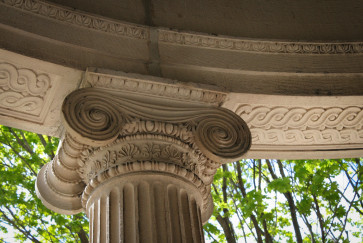Northwestern University astrophysicist Adam Miller has received a 2025 Cottrell Scholar Award from the Research Corporation for Science Advancement (RCSA), the United States’ first foundation wholly dedicated to science.
Miller is among a diverse group of 16 early career scholars in chemistry, physics and astronomy recognized with the annual award. Each awardee receives $120,000.
The scholars will be honored and meet to exchange ideas July 16-18 at the Cottrell Scholar Conference in Tucson, Arizona.
“These distinguished awardees join a multidisciplinary, multigenerational force of more than 500 Cottrell Scholars from colleges and universities across the United States and Canada,” said RCSA president and CEO Daniel Linzer. “In their own classrooms and labs, and together through projects with national impact, Cottrell Scholars are innovators in science and teaching at their own institutions and beyond.”
He aims to understand which binary star systems can produce a spectacular explosion called a Type Ia supernova.
Miller is an assistant professor of physics and astronomy in the Weinberg College of Arts and Sciences and a member of Northwestern’s Center for Interdisciplinary Exploration and Research in Astronomy (CIERA). He received the Cottrell Scholar Award for his proposal “Simultaneously early and late: Leveraging LS4 and LSST to understand the physics of white dwarf supernovae.”
With the award, Miller will combine observations from two new time-domain surveys: the Vera C. Rubin Observatory’s Legacy Survey of Space and Time (LSST) and the La Silla Schmidt Southern Survey (LS4). In some binary systems, white dwarf stars can become unstable and experience runaway nuclear fusion, which leads to an explosion called a Type Ia supernova. By combining observational data, Miller aims to understand which binary star systems can produce these spectacular explosions.
For the educational component of his project, Miller will develop a new program for matriculating physics and astronomy Ph.D. students at Northwestern. The matriculation program will provide young astrophysicists with critical training in scientific computing and connect them with potential mentors within the University.


